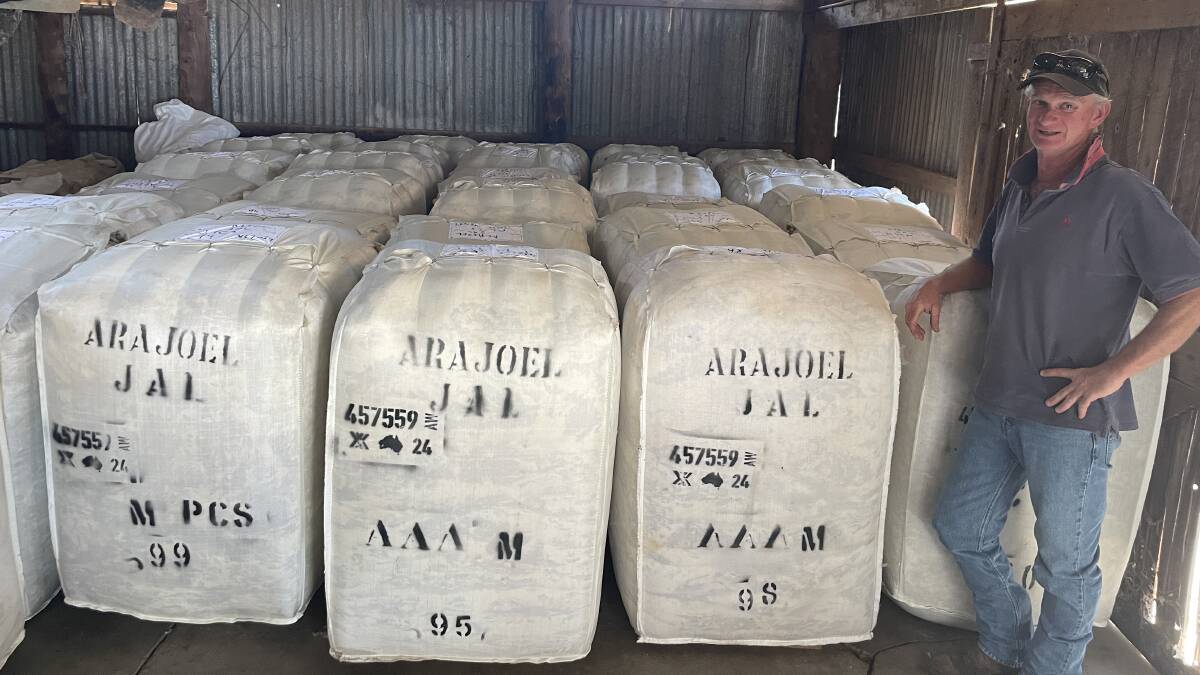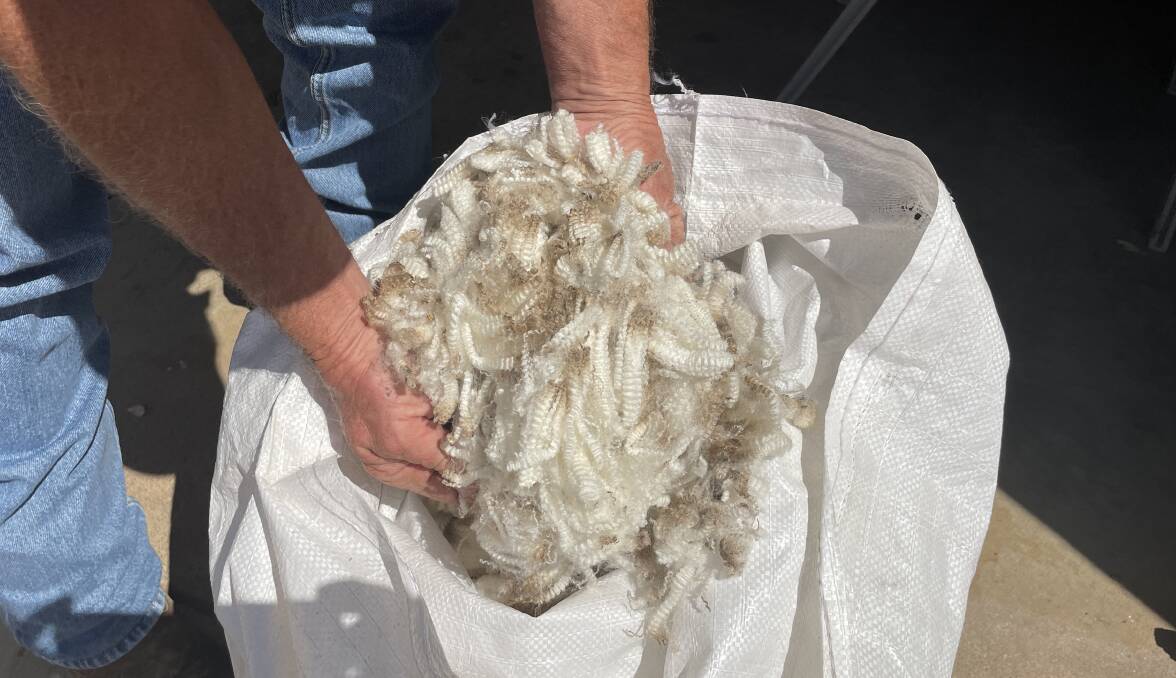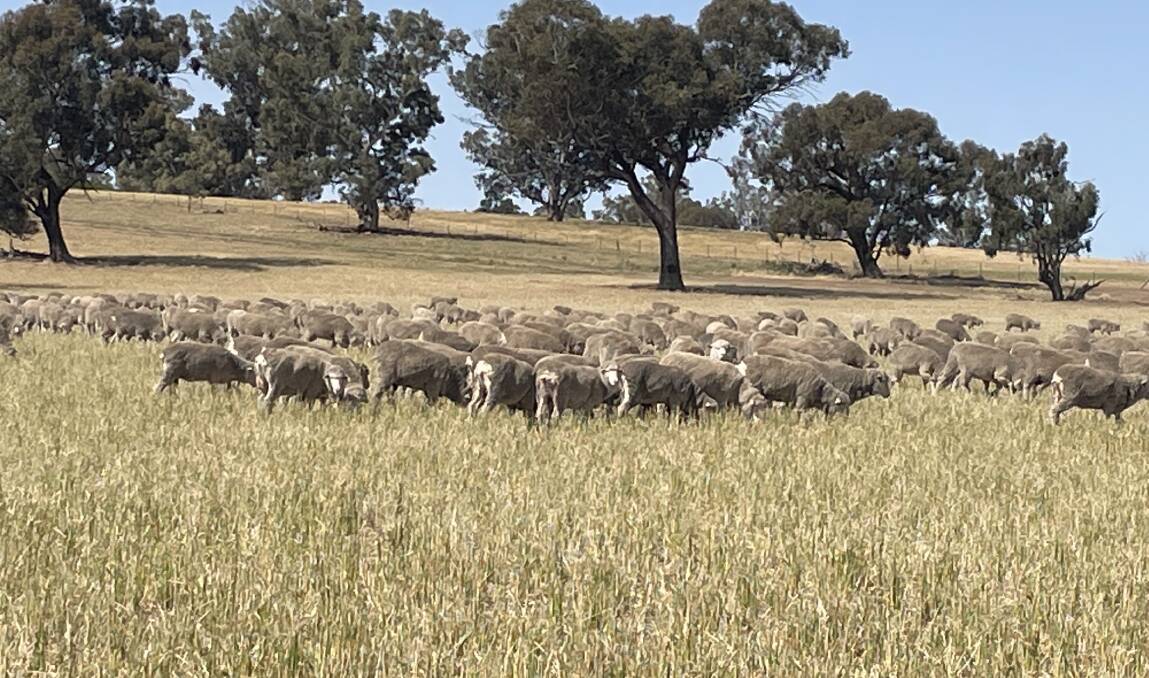
I select my rams for their fleeces which are soft handling and on a body with good carcass attributes
- John Lenehan, Arajoel, Galore
The tradition of raising Merino sheep on the family farm continues with John Lenehan as he strives to maintain profitability through seasonal variations and commodity price fluctuations.
Subscribe now for unlimited access.
or signup to continue reading
Mr Lenehan is the fourth generation of his family to manage Arajoel, Galore, which was purchased by his great grandfather William in 1922, before being handed on to his grandfather Les and father John Lenehan.
"I am committed to growing wool," he said. "It is a family tradition, but it has stood us in good stead for many years and I don't see any reason to change.
"Our returns are good and I think our Merino enterprise, wool and surplus sheep, are more profitable over other enterprises given a ten year average."
Mr Lenehan did take into consideration the current downward trend in sheep prices, but said he will continue to have faith in the wool industry.
"Over a ten year period, we have been able to sell our wool for reasonable returns and at the moment, at $1800 to $2000 per bale, that is sustainable for us," he said.

"With our sheep sales, the last couple of years have been terrific for us and we have been getting great prices for our one year surplus ewes, five year old ewes and wether lambs which we have sold as stores."
His sheep have been mostly listed on AuctionsPlus, as he is some distance from the renowned Merino selling centres, but Mr Lenehan said he has been able to get excellent clearances through that avenue.
"But I might keep my five year old ewes for another lamb this year, if they don't make the reserve when I list them," he said.
"I have the feed and I will have enough rams to cover them."
The Merino flock on Arajoel is classed by Michael Elmes, SmartStock, Narrandera, and Mr Lenehan is quietly pleased with the productivity of his flock.
Selected stud rams have been purchased from Poll Boonoke, Conargo, Orrie Cowie, Warooka, SA, and Dariwell, Trundle, and are joined to specially selected ewes from which his replacement rams are selected.
"I select my rams for their fleeces which are soft handling and on a body with good carcass attributes," Mr Lenehan said.
"I am basically breeding a dual purpose Poll Merino, and when I am looking at prospective sires at auction, I select from the top end of the catalogue.
"They must have a good 'sirey' head which I think shows them to be top sire prospects, but I also look for a good white and bright fleece on a correct body, with underline and good feet."
Around 2000 Merino ewes are joined for a July lambing, and while the adult flock are shorn each nine months, the weaners are shorn in May and then again at the next adult shearing to bring them in line.
Mr Lenehan said the weaner fleeces weigh around three and half kg and measure 17micron, while the adult ewes at each nine months cut around five to six kg and measure 19micron.
"Our staple length at nine months is long enough for the trade at 70 to 80mm, and warrants the extra shearing," he said.

"Since I have been doing the nine month shearing, I have noted an improvement in the welfare of the ewe, and it has made their husbandry a lot easier. The fertility has also lifted and this year I marked 115pc lambs to ewes joined."
All of the ewes are scanned each year - the dry maidens are given a second chance, while the dry adult ewes are sent away for sale.
"I have seen that with the modern genetics, our wool is testing finer but we are still getting good fleece weights," he said.


